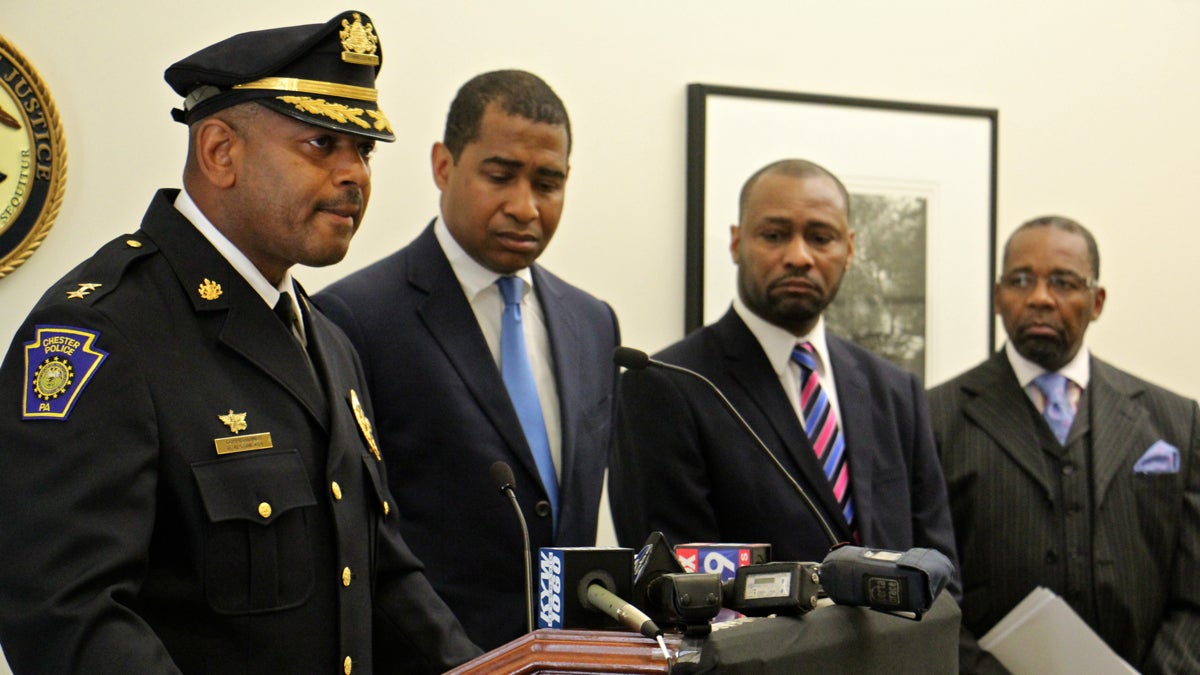After police-involved shootings, DOJ teams with Chester cops to improve community relations
Listen
Chester Police Commissioner Darren Alston (left) says he will subject his force to a U.S. Deparment of Justice review examining officer-involved shootings and community policing practices. With him are (from left) U.S. Attorney Zane Memeger
In February, Chester police pursued 33-year-old Shalamar Longer into a residential neighborhood and unleashed nearly a hundred rounds into his vehicle.
Police said he had a gun. Neighbors held a memorial vigil. The news cycle spun on.
Police-involved shootings such as this one are too common in Chester and across the United States, said Mayor Thaddeus Kirkland.
“It always ended in a very tragic way,” he said.
Thursday, the Department of Justice’s office of Community Oriented Policing Services — known as COPS — announced a partnership with the city to review its police practices.
Through a program called Collaborative Reform Initiative for Technical Assistance, the DOJ’s COPS office helps police departments “facing significant law enforcement-related issues” around the country. Chester has a long history of distrust, a number of police-involved shootings, a much higher than average unsolved murder rate despite more murders per capita than any other city or borough in Pennsylvania.
The two-year process, funded by the federal government, will hone in on five areas, according to Noble Wray, COPS Policing Practices and Accountability Initiative chief.
Criminal justice experts will observe and analyze Chester police, coming up with specific recommendations in the areas of “officer-involved shootings, community-oriented policing, building trust, data collection, and crime analysis,” he said, although the scope may expand.
After a six-month assessment, COPS will issue a list of recommendations, followed by 18 months of monitoring. Wray emphasized that the assessment is not an investigation and will not involve the police department answering for specific incidents.
Making changes based on those recommendations is completely voluntary, but Chester Police Commissioner Darren Alston said he plans “to follow what the recommendations are,” including changing police policy “if need be.”
The first step in bridging the police-community trust gap will come June 16, when the Department of Justice will hold a listening session with residents at Widener University.
In another push for police transparency and accountability, this week Chester City Council approved a pilot program outfitting officers with body cameras, according to Alston.
WHYY is your source for fact-based, in-depth journalism and information. As a nonprofit organization, we rely on financial support from readers like you. Please give today.

